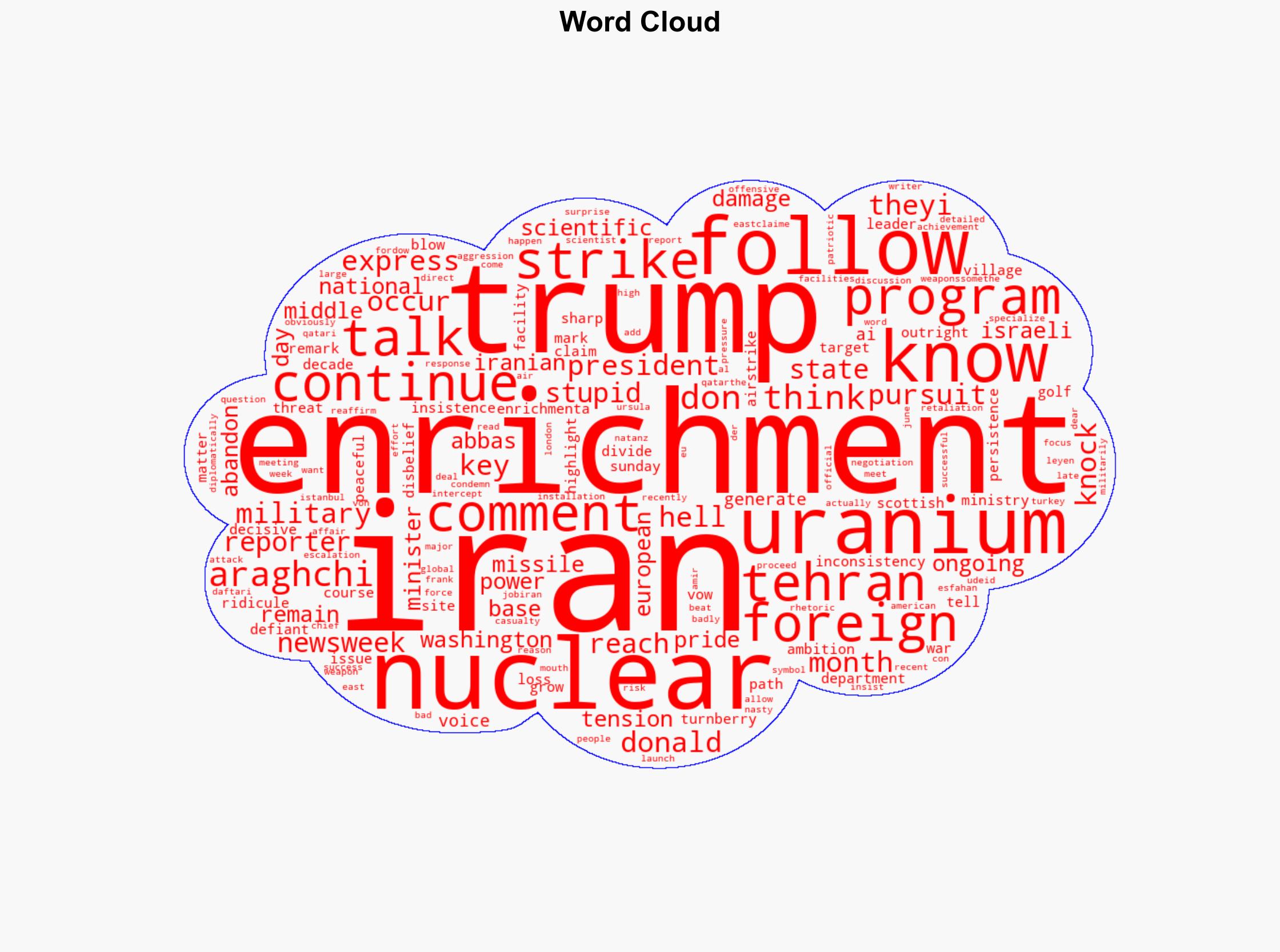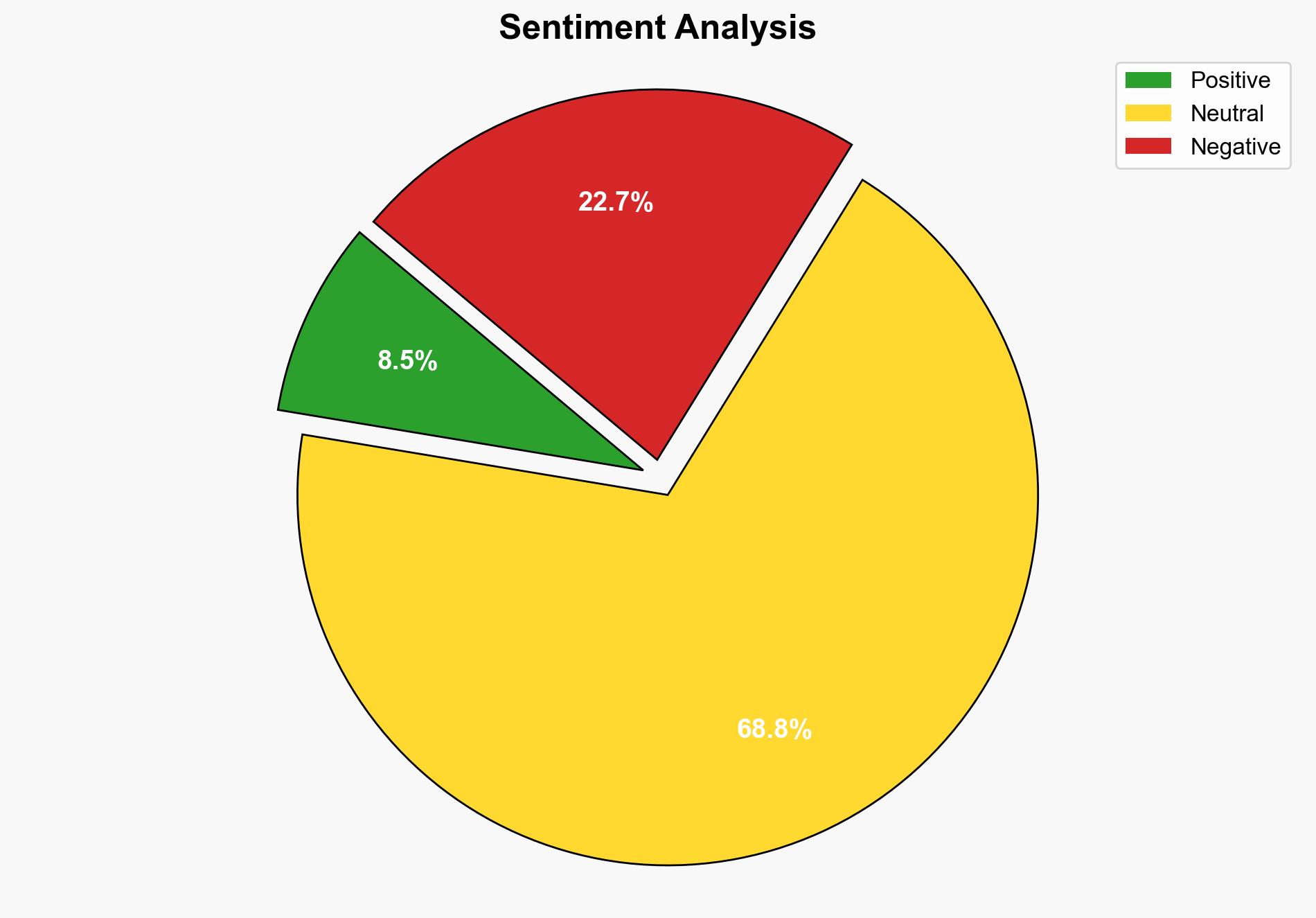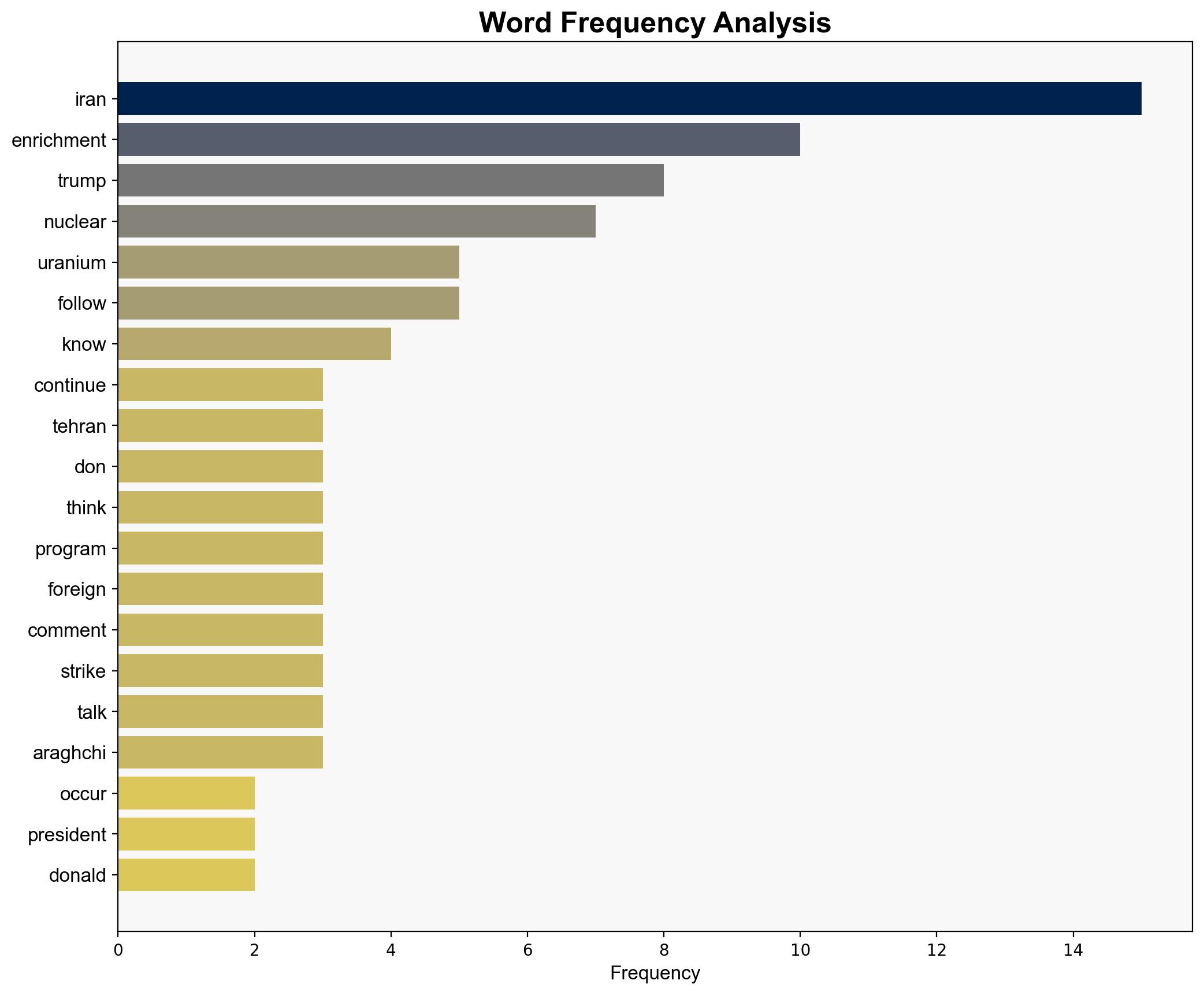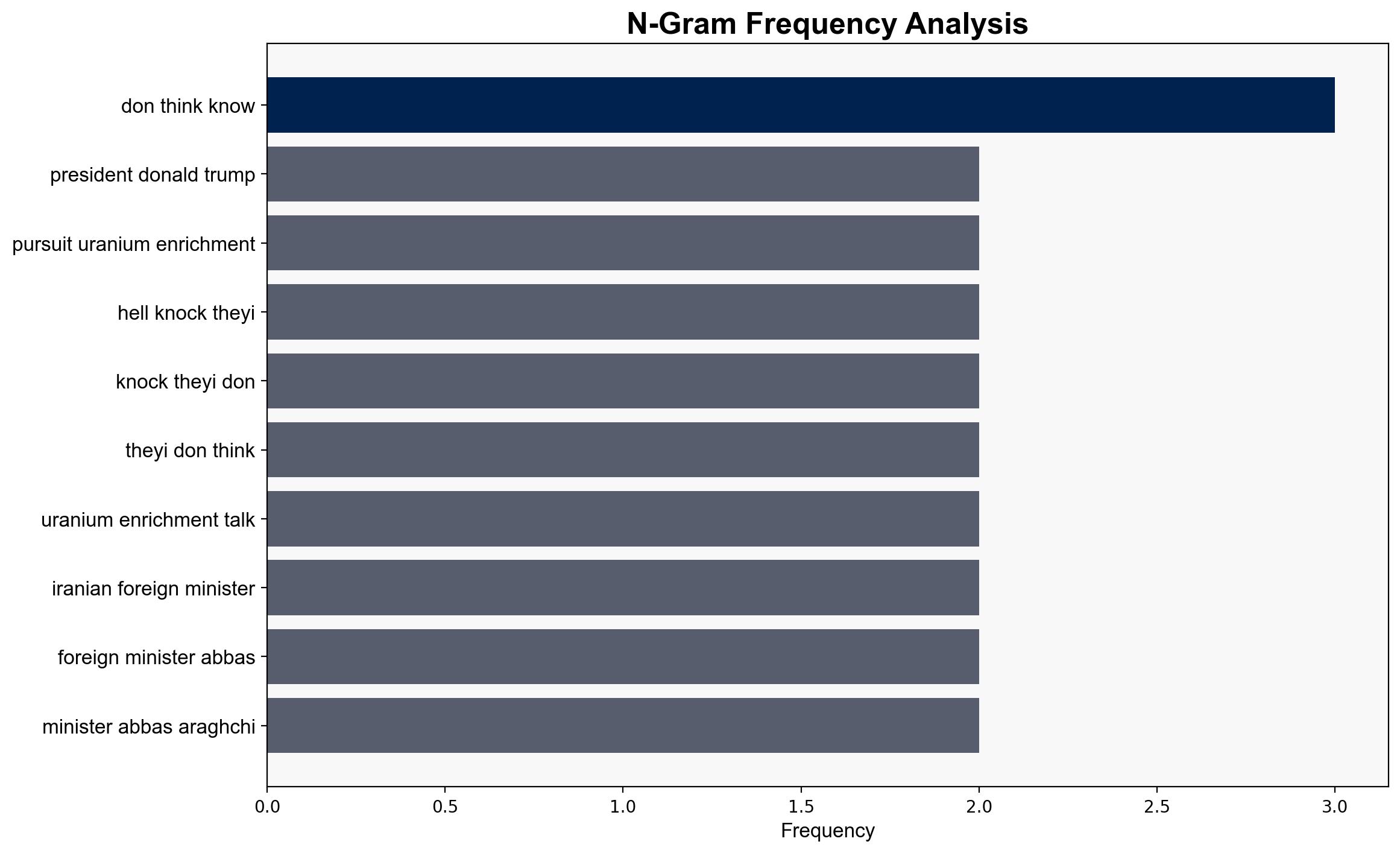Trump Threatens ‘Stupid’ Iran – Newsweek
Published on: 2025-07-28
Intelligence Report: Trump Threatens ‘Stupid’ Iran – Newsweek
1. BLUF (Bottom Line Up Front)
The most supported hypothesis is that the U.S. is using aggressive rhetoric as a strategic maneuver to pressure Iran into abandoning its uranium enrichment program. Confidence level: Moderate. Recommended action: Increase diplomatic engagement with European allies to present a unified front and explore backchannel communications with Iran to de-escalate tensions.
2. Competing Hypotheses
1. **Hypothesis 1**: The U.S. is employing aggressive rhetoric as a strategic maneuver to pressure Iran into abandoning its uranium enrichment program. This hypothesis is supported by the pattern of U.S. diplomatic and military posturing, as well as the timing of Trump’s comments following meetings with European leaders.
2. **Hypothesis 2**: The U.S. genuinely perceives Iran’s uranium enrichment as an immediate threat and is preparing for potential military action. This is supported by the recent military strikes and the strong language used by Trump, suggesting a readiness to escalate militarily if necessary.
Using ACH 2.0, Hypothesis 1 is better supported due to the lack of immediate military mobilization and ongoing diplomatic efforts with European powers.
3. Key Assumptions and Red Flags
– **Assumptions**: It is assumed that Iran’s uranium enrichment is primarily for nuclear weapon development, despite Iran’s claims of peaceful scientific purposes.
– **Red Flags**: The consistency of Trump’s rhetoric with actual U.S. military actions is questionable. The lack of direct statements from the State Department or Iranian Foreign Ministry on the matter could indicate strategic ambiguity or internal disagreements.
– **Blind Spots**: Potential internal political pressures within the U.S. and Iran that might influence decision-making are not fully explored.
4. Implications and Strategic Risks
– **Escalation Risk**: Continued aggressive rhetoric could lead to miscalculations, increasing the risk of military conflict.
– **Economic Impact**: Heightened tensions could disrupt global oil markets, affecting economic stability.
– **Geopolitical Dynamics**: Strained U.S.-Iran relations may impact alliances and influence in the Middle East, potentially drawing in other regional powers.
– **Cyber Threats**: Increased likelihood of cyberattacks as a form of asymmetric warfare.
5. Recommendations and Outlook
- Engage in multilateral diplomacy with European allies to strengthen the diplomatic front against Iran’s nuclear ambitions.
- Establish backchannel communications with Iran to explore de-escalation options.
- Prepare for potential cyber threats by enhancing cybersecurity measures.
- Scenario Projections:
- Best Case: Diplomatic resolution leading to Iran’s compliance with international nuclear agreements.
- Worst Case: Military conflict resulting in regional instability and economic disruption.
- Most Likely: Continued diplomatic tension with intermittent escalations, but no direct military conflict.
6. Key Individuals and Entities
– Donald Trump
– Abbas Araghchi
– Ursula von der Leyen
7. Thematic Tags
national security threats, cybersecurity, counter-terrorism, regional focus





